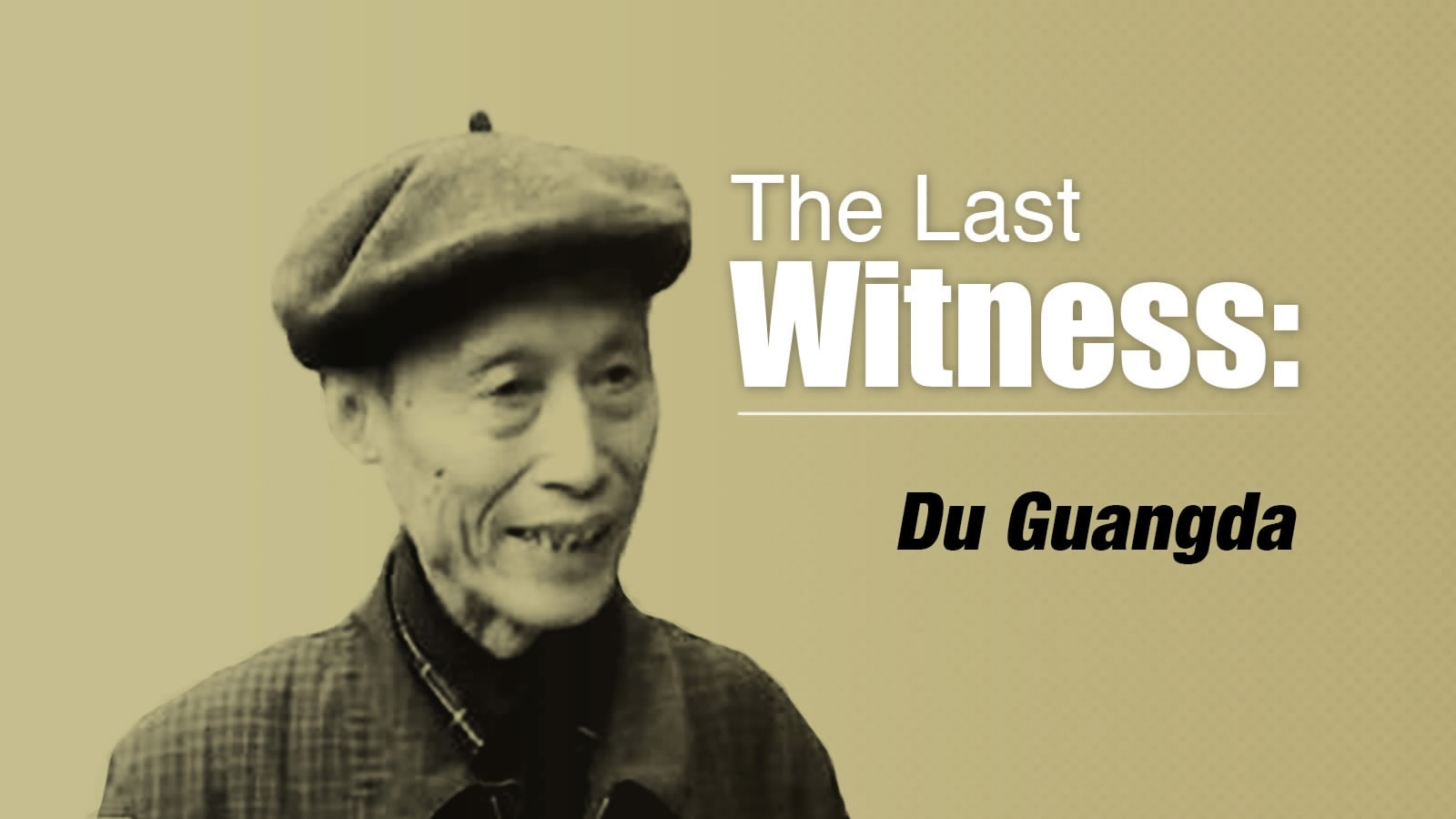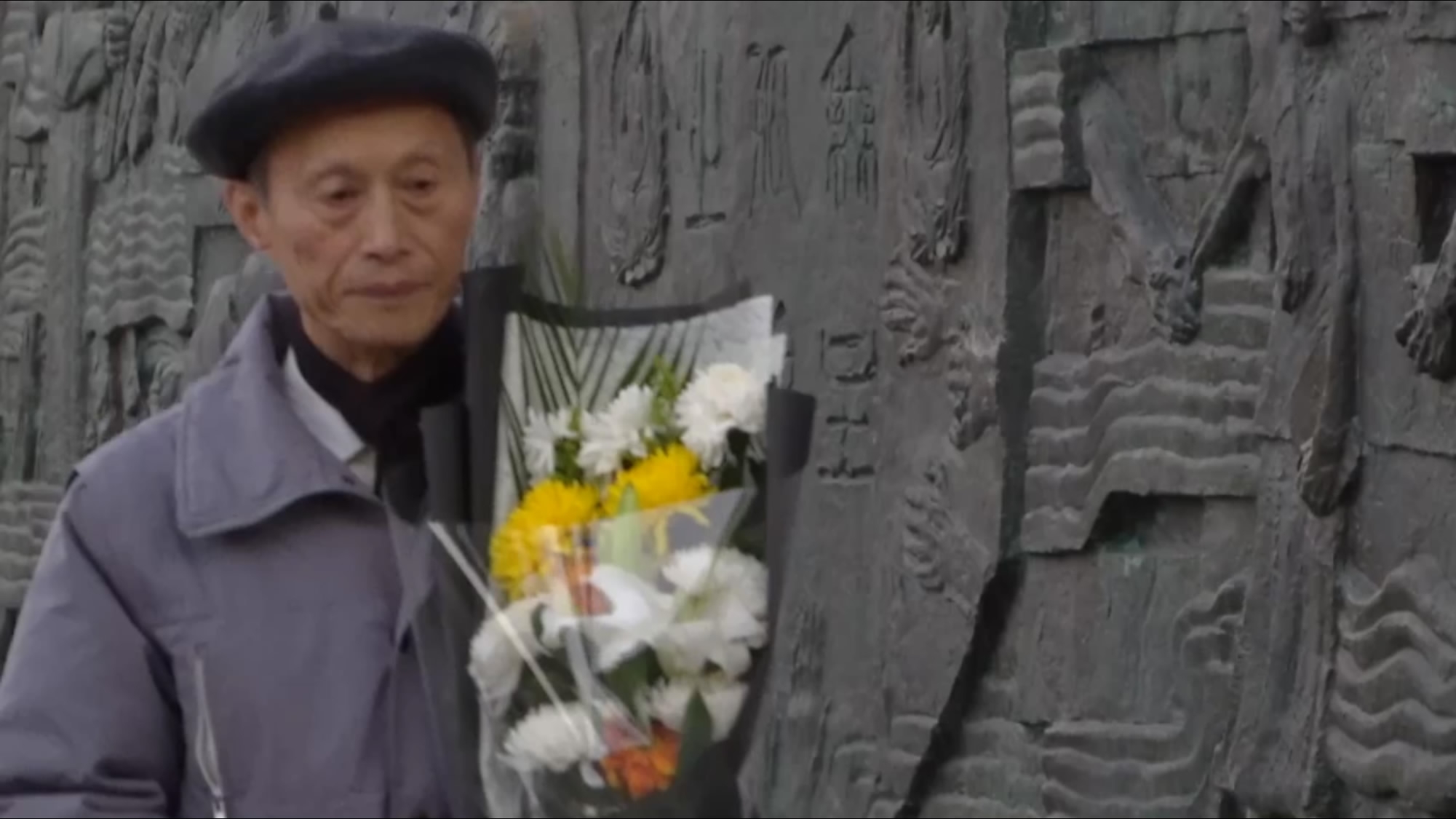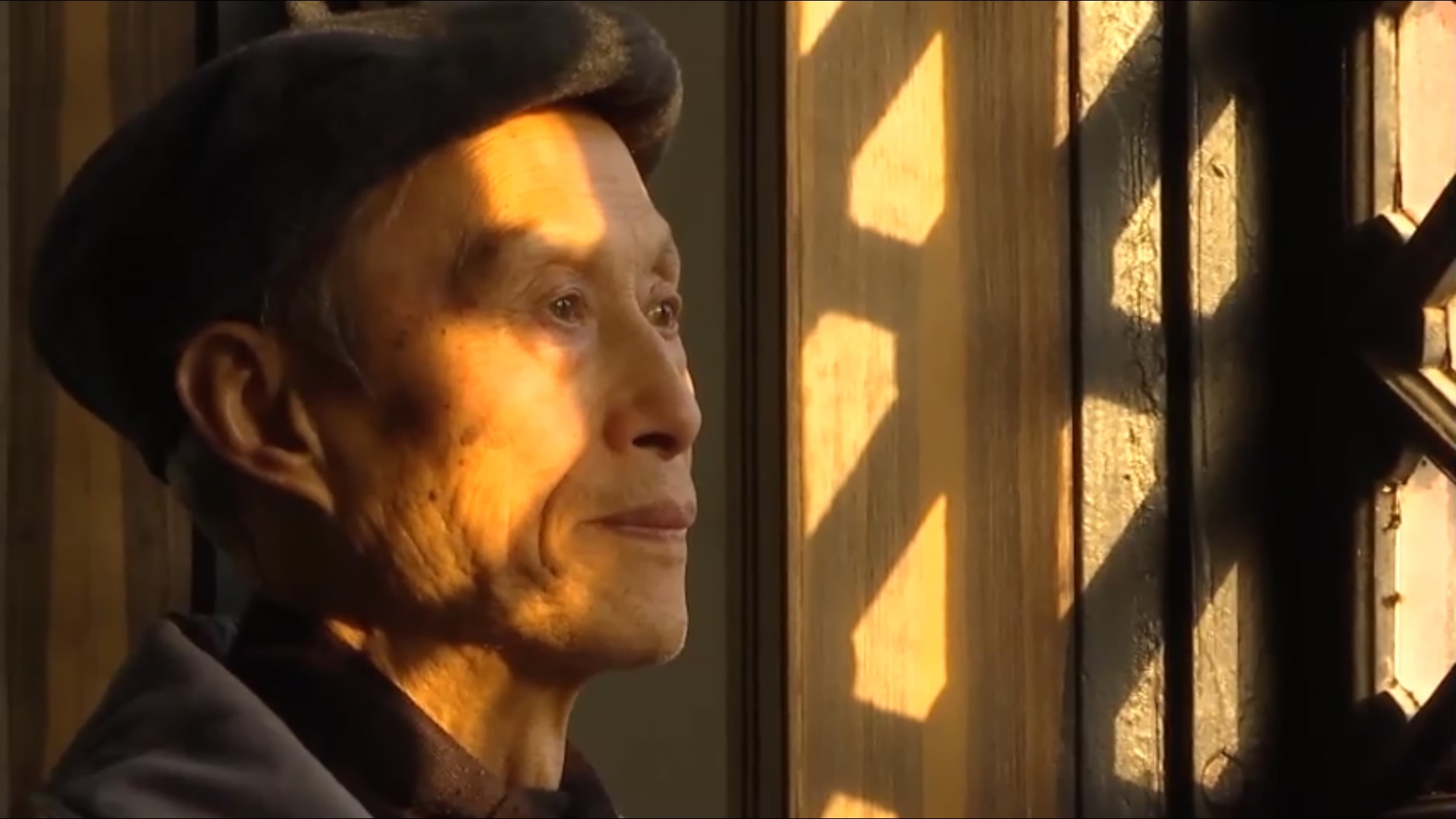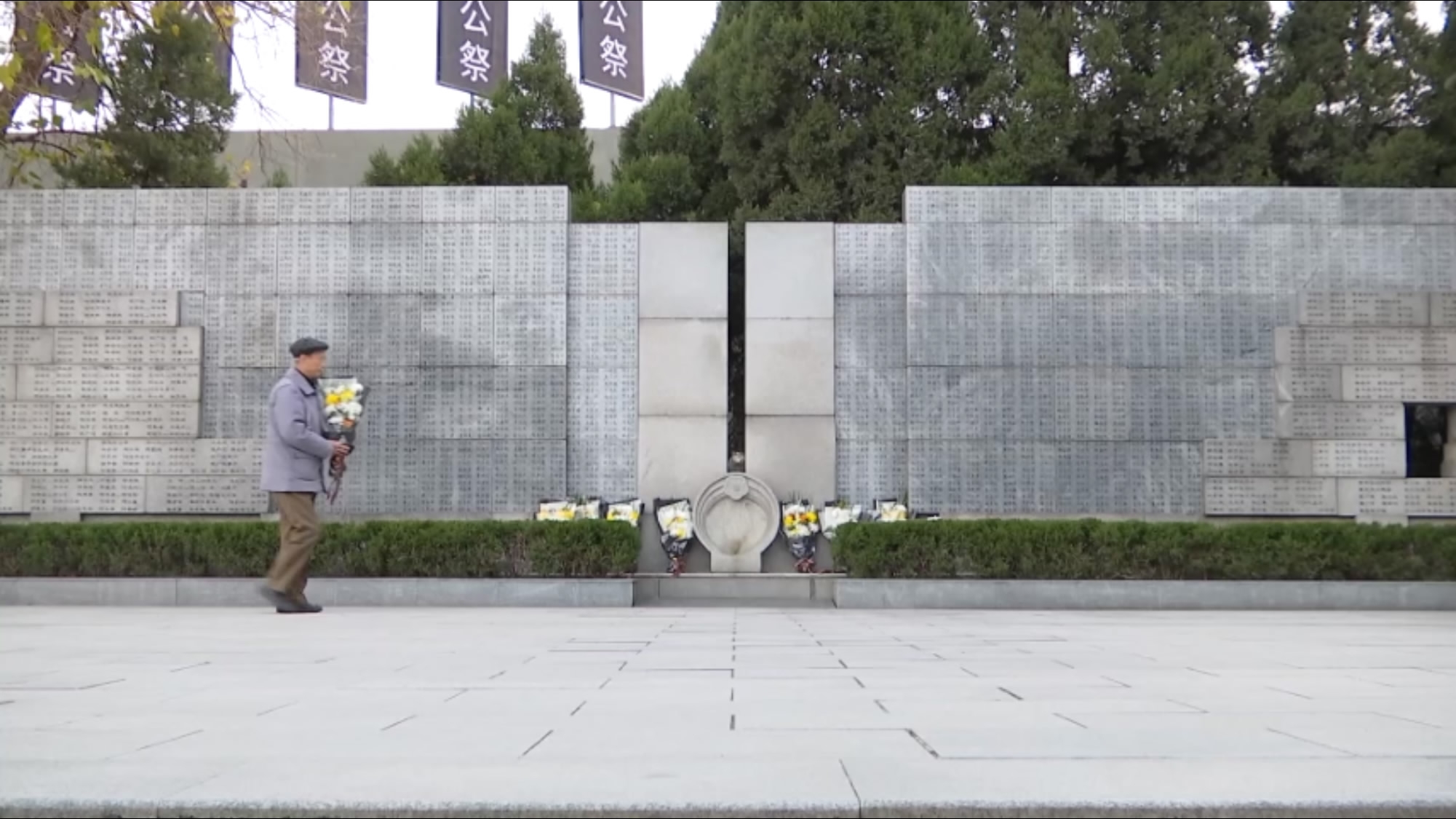
Culture
16:16, 13-Dec-2017
The Last Witness: My father was gone without a trace
By Zheng Yibing

Less than a hundred survivors of Nanjing Massacre are still alive today. These aged people are fast disappearing, and their stories about the events in the Chinese port city 80 years ago are now the very few remaining firsthand accounts.
Du Guangda, 84, is one of them.
He was only four years old when the massacre took place. Although most of his memories are faint, they still haunt him.
When Nanjing fell in 1937, the enemy was literally on Du's doorstep.
He says Japanese soldiers searched everywhere after they swarmed in. They burned, killed and raped.

Nanjing Massacre survivor Du Guangda, 84, lays flowers in the memory of his family members who were killed by Japanese invaders in December 1937. /CGTN Photo
Nanjing Massacre survivor Du Guangda, 84, lays flowers in the memory of his family members who were killed by Japanese invaders in December 1937. /CGTN Photo
Du was living with his family near Zhonghua Gate, a very same place where Japanese troops broke through the city's defenses after a fierce battle.
Du's father went out to try and find a safe place for his family, but never returned.
They were not residents of Nanjing. Du and his family had fled all the way from Shanghai to Suzhou, and then to Nanjing to escape the mass killings by the Japanese. But death seemed to be following them.
The old man recalls that his grandmother, mother and aunt brought him immediately to the international safety zone. His grandfather wanted to look after the house. He was later shot dead by the Japanese.

Nanjing Massacre survivor Du Guangda. /CGTN Photo
Nanjing Massacre survivor Du Guangda. /CGTN Photo
But the international safety zone was not completely secure. Japanese soldiers regularly harassed people in the zone, trying to take away young men to kill so as to prevent them from joining the army, and abduct young women to force them into sex slavery.
He still has memories of the shelters in Nanjing. Many girls, including his aunt, dabbed ash on their faces, trying to look like boys. No one dared to make a sound when Japanese soldiers came to the shelters. Everyone lived in fear, Du maintains.
He recently returned for the first time to the building they took shelter in 80 years ago. Now that he has reached old age, he says he wants to tell his story before it's too late. And he thanks those who lent him a helping hand at the darkest moment.
One thing of which Du cannot let go is his father's fate.
Over the years, he searched every corner of Nanjing, but his attempts always ended with disappointment.

Nanjing Massacre survivor Du Guangda, 84, lays flowers in the memory of his family members who were killed by Japanese invaders in December 1937. /CGTN Photo
Nanjing Massacre survivor Du Guangda, 84, lays flowers in the memory of his family members who were killed by Japanese invaders in December 1937. /CGTN Photo
He even went through archives and consulted experts, but never found any trace of his father. This confirmed his father had been killed during the massacre. The name of Du's father was engraved on the wailing wall this year.
Du says this is a closure to his father's tragic life. Now he, his children and grandchildren, can finally have a place to pay tribute to him.
Only about 10,000 names are engraved on the wall. The names and stories of the 290,000 other victims who were killed, buried or thrown into rivers in Nanjing may never ever be told.

SITEMAP
Copyright © 2018 CGTN. Beijing ICP prepared NO.16065310-3
Copyright © 2018 CGTN. Beijing ICP prepared NO.16065310-3